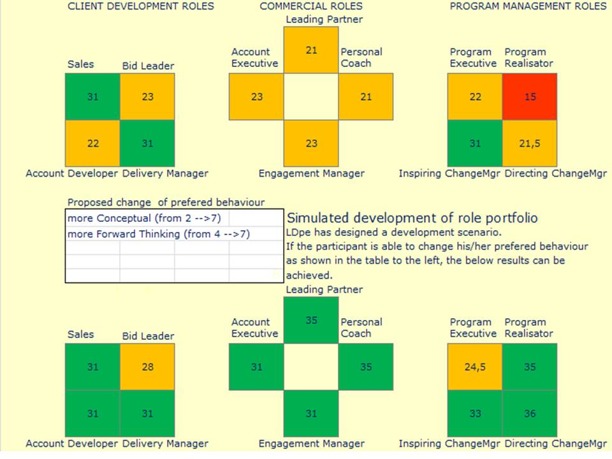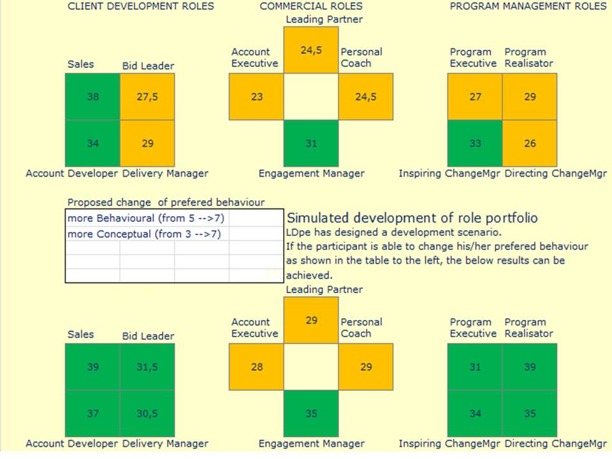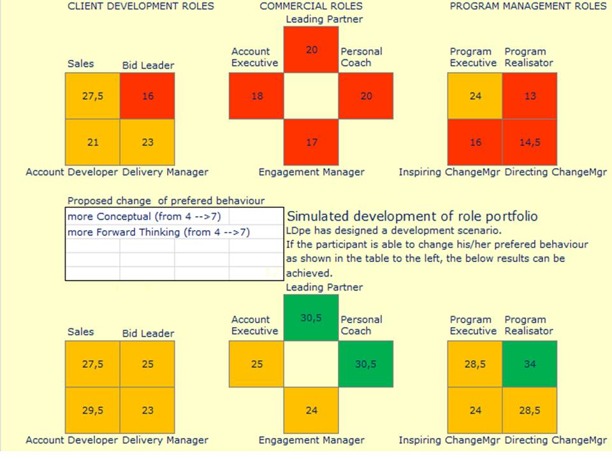EXAMPLES OF QUICK WINS SCENARIOS PROFESSIONAL ROLES
The LDT simulation module
The LDT Simulation module will help the participant to analyse the impact of adapting his behavioural preferences. By changing the behavioural preferences he will be able to develop stronger competences and a broader Style portfolio, which enables him to cope with a larger variety of situations.
Higher and lower scores of the measured personality profile may be indications on both potential qualities as well as risks for potential pitfalls.
The underlying hypothesis in the design of the LDT Simulation module is the fact that by consciously changing a behavioural preference to 'a middle score', a person will be able to retain the potential qualities of a strong preference, while avoiding the typical pitfalls of the same behaviour.
Certain preferences are very hard to change (e.g. an introvert person will hardly suddenly become extravert). LDpe will take this into account when composing the development scenario. By testing the impact of different hypothetical changes, LDpe works out two scenarios on the basis of the participant's unique personality, one scenario with only a limited number of behavioural changes (the Quick Wins scenario) and one showing the optimal effect in developing the style and role portfolio (from the personality profile as it is today).
For the participant, the simulation reports can be used for deeper analyses and reflections and for discussions with coaches and superiors about the direction of the development as a leader/leading professional. This will support him in defining the Personal Development Plan.
The management report of the Fit for Role analyses includes the potential effects of the quick wins scenarios of the individual participant. Three examples of Quick Wins scenarios are included in this demo case.
Example 1
Example 2
Example 3







